|
By Eve Higby and Micki Luckey
During the nine months of Israel’s unrelenting war, the Middle East Children’s Alliance (MECA) has continued to deliver food to people in Gaza. To raise funds to support this work, MECA held its Third Annual Ride for Palestine this past Sunday, July 21st. The need for aid is especially urgent: Israeli bombardments have caused massive displacements, and the Israeli government has blocked the entry of food. Tens of thousands of Palestinian children suffer from severe malnutrition and medical supplies are practically nonexistent, according to a recent UNICEF report. A team of 16 SURJ Bay Area riders joined about fifty other teams in the Ride for Palestine to raise funds for MECA. The event was wildly successful, surpassing MECA’s goals by raising nearly $300,000, and bringing a few hundred people together for Palestinian food, music and dancing in a day of solidarity with Gaza. The recent violence outside the Los Angeles Adas Torah synagogue was immediately met with cries of antisemitism — from President Joe Biden to Governor Gavin Newsom to L.A. Mayor Karen Bass and everyone in between. Why would pro-Palestinian activists protest outside of a synagogue? Most media outlets didn’t ask that question, merely reporting on the violence and thus insuring it would appear like protesters were simply targeting a house of worship. So why were the protesters there? Before we dig in, imagine this scenario: One day, you and your neighbors are told that you have to vacate your homes and will not be allowed to return. Soldiers with weapons are enforcing this and you know that to stay would mean imprisonment or even death for your family. You have children, your aging mother lives with you. So you have no choice. You and your neighbors leave homes that have been in your families for generations. A few months later, you hear from your cousin living abroad. He tells you that a real estate company is holding a sale of properties that are located in your old neighborhood, including your home! How is this possible?, you ask yourself. How can they sell our home to a group of foreigners when that home has been in our family for decades? Sounds far-fetched? Well that’s exactly what is happening in the United States. Homes, lands, farms, and whole villages that belonged to Palestinian families are being sold by Israeli real estate companies to prospective U.S. buyers at events across the country. Many of the properties being sold are in the West Bank, illegal according to international law. And the events are only open to Jews, illegal under U.S. Civil Rights law. So back to the question. Why were the Pro-Palestine protesters there? They were protesting a real estate fair being held at the synagogue, where attendees were invited to meet “representatives of housing projects in all the best Anglo neighborhoods in Israel.” Anglo? On top of the illegality of the event, it’s blatantly racist too! Hussam Ayloush, Executive Director of the Greater Los Angeles Area Council on American-Islamic Relations (CAIR), told The NY Times that the Israeli real estate event “could have been hosted at a Motel 6 or a mosque and they would still be subject to protest.” One could ask why is a synagogue is hosting such a nefarious event. But another key question is why were so many so quick to label this protest as antisemitism before knowing all the facts or even how the violence got started in the first place. If we look at recent pro-Palestine protests and student encampments, the vast majority have been peaceful. The main violence we’ve seen has been from highly-militarized police and swat teams and pro-Israel counter protesters. Of the recent incident, L.A. Mayor Bass said, “The violence we saw yesterday in the heart of a Jewish community was designed to divide and create fear, but hear me loud and clear: it will fail.” True that, Madam Mayor, the Palestine solidarity movement is unified and fearless as ever. Attempts to “divide and conquer” by waging charges of antisemitism will indeed fail. Want to read more about the Israeli real estate sales? Here you go:
Hundreds of Palestine supporters protest Israeli real estate event at New Jersey synagogue (The Guardian) Israeli Firms Are Working Overtime to Sell Stolen Palestinian Land to US Jews (truthout) Israeli real estate event draws backlash over sale of West Bank settlement properties (Middle East Eye) Against the Loveless World by Susan Abulhawa. Reviewed by Micki Luckey.
In her beautiful but emotionally challenging novel, Against the Loveless World, Susan Abulhawa captures the insecurity and lack of place experienced by Palestinians in the diaspora and then the building of community and resistance to the occupation inside Palestine. With exquisite descriptions of place, food, events, and people, we follow Yaqoot (also called Nahr) as she moves from Kuwait to Jordan to Palestine. By Felicia Gustin “Each generation must, out of relative obscurity, discover its mission, fulfill it, or betray it.” –Frantz Fanon (1925 - 1961), philosopher, revolutionary, author, and pre-eminent thinker on the issue of decolonization By Micki Luckey The numbers coming out of Gaza are numbing — over 33,000 dead, almost half children; 17,000 orphans; already 20 dead of starvation and many more expected; 80% of the population displaced… Many of us in SURJ Bay Area have been marching and demonstrating, signing petitions, sending emails, and making phone calls to protest the assault on Gaza now entering its sixth month. We follow the actions recommended by our partner, Arab Resource and Organizing Center, as well as our allies at Jewish Voice for Peace. Another organization that supports Palestine is the Middle East Children’s Alliance (MECA). MECA is located in Berkeley and provides on-the-ground support in Palestine as well as other parts of the Middle East. Below is the voice of one of their workers.
By Erin Kane, Rachael Devlin and Micki Luckey
A few years ago, SURJ BA posted a list of Racial Justice Books for White People. Two lists, really — one fiction, one non-fiction. The books on these lists were chosen through a vote by the chapter membership.
Recently, a few of us were trading comments on books we have loved. Out of these conversations grew a desire to shine a light on more Black voices in honor of Black History Month. SURJ Bay Area’s Policy Committee supports incredible partner organizations – Californians United for a Responsible Budget (CURB), the Ella Baker Center for Human Rights, Legal Services for Prisoners with Children (LSPC) / All of Us or None, Essie Justice Group, Initiate Justice, Hand in Hand: The Domestic Employer’s Network, and the Drop LWOP Coalition – in their legislative advocacy campaigns, aimed at ending the prison industrial complex and building a world free of cages and with equitable working and living conditions for all. Part 2 of 2: It’s time to speak out against Moms For Liberty by Regie Stites In August and September 2023, the Yolo County Library and schools in Davis, California received a half-dozen emailed bomb threats containing homophobic hate speech. These threats were inspired by a campaign by the local Moms For Liberty chapter aimed at banning books that center on LGBTQ+ characters and issues. 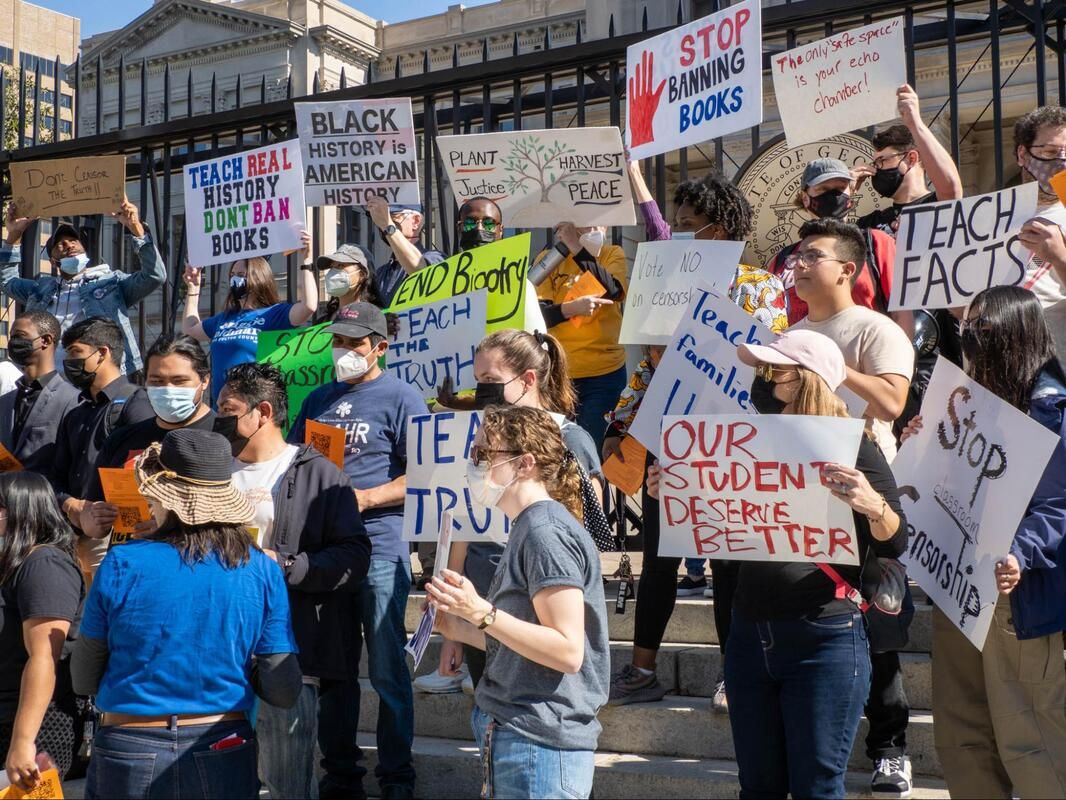 A crowd of people hold signs saying “Stop Banning Books,” “Our Students Deserve Better,” and “Teach the Truth” at a protest against book banning in Atlanta, GA, 12 February 2022. Photo by John Ramspott. https://commons.wikimedia.org/wiki/File:Book_Banning_Protest,_Atlanta,_GA_2-12-2022_P2120167_(51878411104).jpg Part 1 of 2: It’s time to stand up against White Rage by Regie Stites On August 29, 2023, a public elementary school in my neighborhood in Oakland, California was closed for the day because of an emailed bomb threat. Incredibly, the threat of violence came about as a reaction to a weekend playdate at the school for children of color and their families, an effort by the school community to create a safe and welcoming space for all children. SURJ Bay Area’s Policy Committee supports incredible partner organizations – Californians United for a Responsible Budget (CURB), the Ella Baker Center for Human Rights, Legal Services for Prisoners with Children (LSPC) / All of Us or None(AOUON), Essie Justice Group, Initiate Justice, Hand in Hand: The Domestic Employer’s Network, and the DropLWOP Coalition – in their legislative advocacy campaigns, all aimed at ending the prison industrial complex and building a world free of cages and with equitable working and living conditions for all. As we enter the 2023 California legislative cycle, we’d like to share the bills (and visions!) our partners are focused on.
Please join us in taking action to support these incredible bills by joining our Legislative Action List here and/or joining our weekly Action Hours here! |
Find articles
All
Browse by date
July 2024
MEDIUM |
© COPYRIGHT 2017-2024 SURJ BAY AREA. ALL RIGHTS RESERVED.





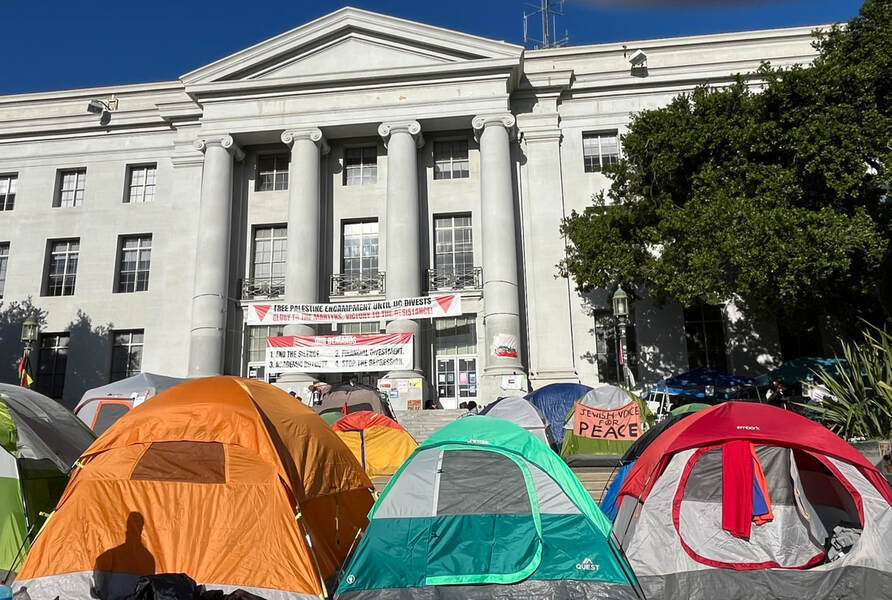
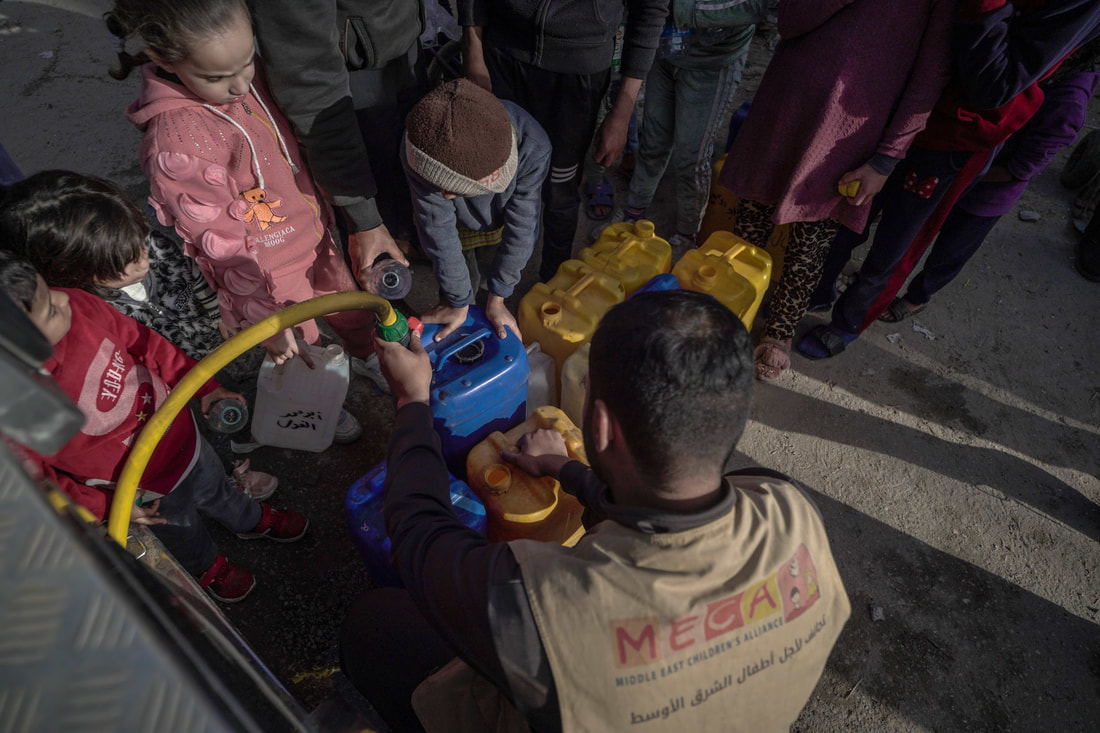
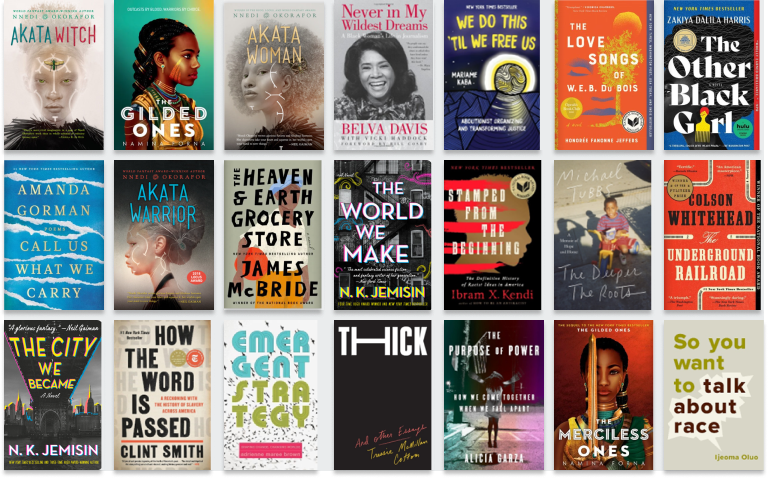
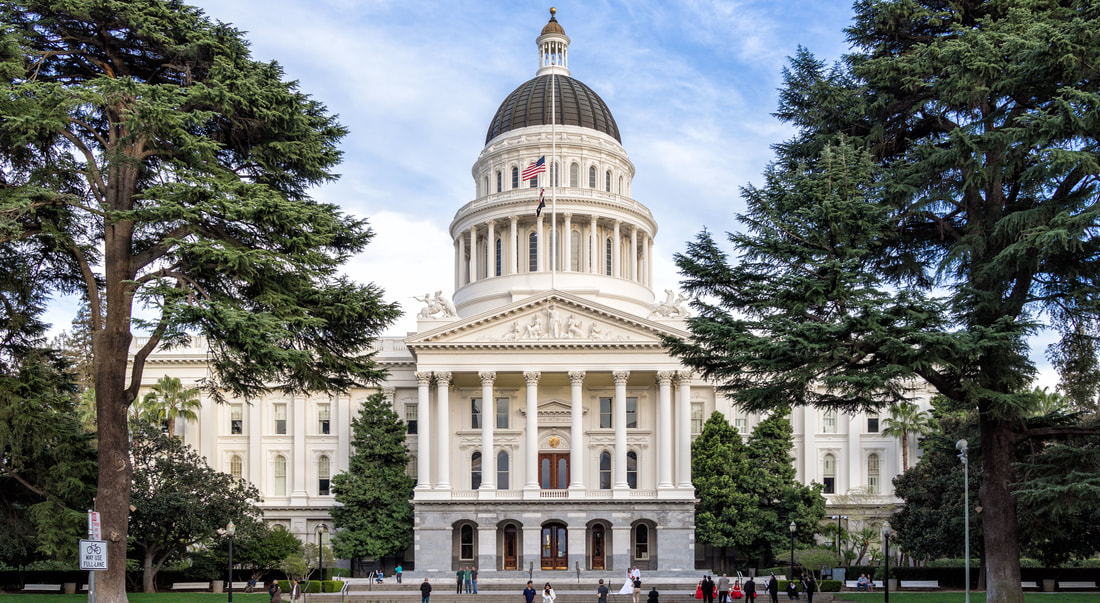
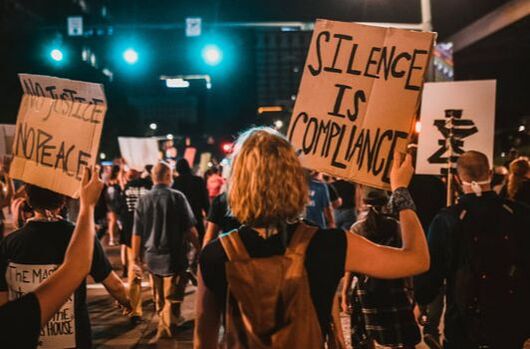

 RSS Feed
RSS Feed